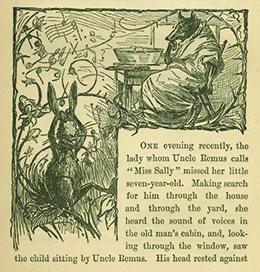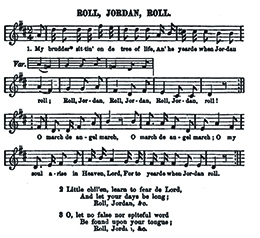| << Chapter < Page | Chapter >> Page > |
Under southern law, slaves could not marry. Nonetheless, some slaveholders allowed marriages to promote the birth of children and to foster harmony on plantations. Some masters even forced certain slaves to form unions, anticipating the birth of more children (and consequently greater profits) from them. Masters sometimes allowed slaves to choose their own partners, but they could also veto a match. Slave couples always faced the prospect of being sold away from each other, and, once they had children, the horrifying reality that their children could be sold and sent away at any time.
Browse a collection of first-hand narratives of slaves and former slaves at the National Humanities Center to learn more about the experience of slavery.
Slave parents had to show their children the best way to survive under slavery. This meant teaching them to be discreet, submissive, and guarded around whites. Parents also taught their children through the stories they told. Popular stories among slaves included tales of tricksters, sly slaves, or animals like Brer Rabbit , who outwitted their antagonists ( [link] ). Such stories provided comfort in humor and conveyed the slaves’ sense of the wrongs of slavery. Slaves’ work songs commented on the harshness of their life and often had double meanings—a literal meaning that whites would not find offensive and a deeper meaning for slaves.

African beliefs, including ideas about the spiritual world and the importance of African healers, survived in the South as well. Whites who became aware of non-Christian rituals among slaves labeled such practices as witchcraft. Among Africans, however, the rituals and use of various plants by respected slave healers created connections between the African past and the American South while also providing a sense of community and identity for slaves. Other African customs, including traditional naming patterns, the making of baskets, and the cultivation of certain native African plants that had been brought to the New World, also endured.
Many slaves embraced Christianity. Their masters emphasized a scriptural message of obedience to whites and a better day awaiting slaves in heaven, but slaves focused on the uplifting message of being freed from bondage.
The styles of worship in the Methodist and Baptist churches, which emphasized emotional responses to scripture, attracted slaves to those traditions and inspired some to become preachers. Spiritual songs that referenced the Exodus (the biblical account of the Hebrews’ escape from slavery in Egypt), such as “Roll, Jordan, Roll,” allowed slaves to freely express messages of hope, struggle, and overcoming adversity ( [link] ).

What imagery might the Jordan River suggest to slaves working in the Deep South? What lyrics in this song suggest redemption and a better world ahead?

Notification Switch
Would you like to follow the 'U.s. history' conversation and receive update notifications?